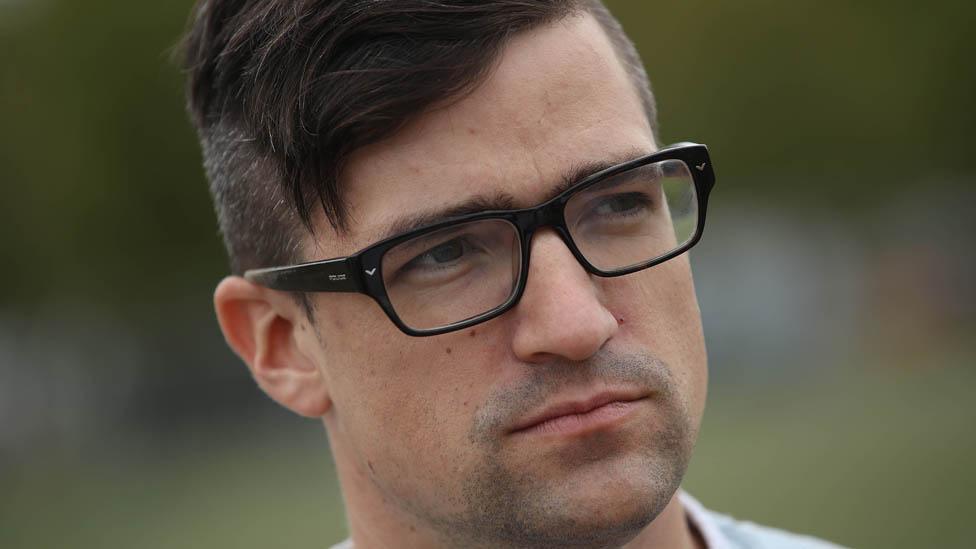Austrian far-right FPÖ quits Kurz government after sacking
- Published
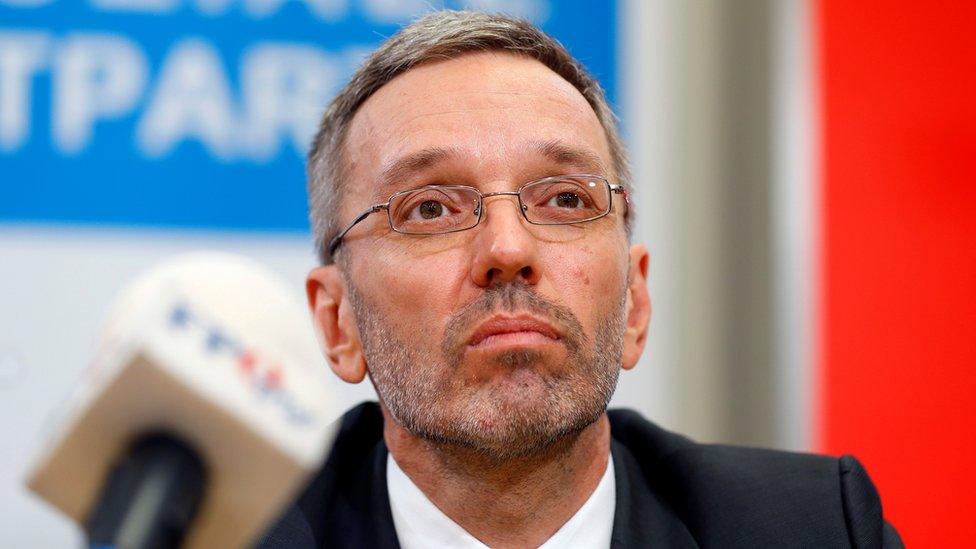
The fate of Interior Minister Herbert Kickl was key to the other resignations
Austria's far-right Freedom Party (FPÖ) has pulled out of the ruling coalition days after two top party figures were caught up in a secret video.
President Alexander Van der Bellen fired FPÖ Interior Minister Herbert Kickl, prompting the party's other ministers to resign in solidarity.
In the video, far-right leader Heinz-Christian Strache appears to offer government contracts to a woman in exchange for electoral support.
He has stood down as vice-chancellor.
The interior minister was not in the footage, but on Tuesday, President Van der Bellen fired him at the request of Chancellor Sebastian Kurz.
Mr Kurz is now attempting to replace all five ministers with technocrats - who he says will be experts in their field - to form an interim government.
The only exception is Foreign Minister Karin Kneissl, an independent picked by the FPÖ, who said she would remain in her post.
Mr Kurz, meanwhile, faces the prospect of a no-confidence vote on Monday amid the political chaos. A special session of the Austrian parliament has been tabled for 27 May.
Why is chancellor under fire?
The fallout has spread beyond the FPÖ to Chancellor Kurz, who is the leader of the centre-right People's Party in the coalition government.
Mr Kurz effectively ended the coalition by calling for fresh elections in September and announcing the dismissal of Interior Minister Kickl - who was FPÖ secretary general at the time the video was made in 2017.
Mr Kurz said he wanted "total transparency and a completely and unbiased investigation".
Other FPÖ ministers, however, said on Monday they would stand by Mr Kickl and resign in solidarity.
Mr Kurz has said a caretaker government would continue in power until September vote, but his ruling party has only 62 seats in the 183-seat parliament.
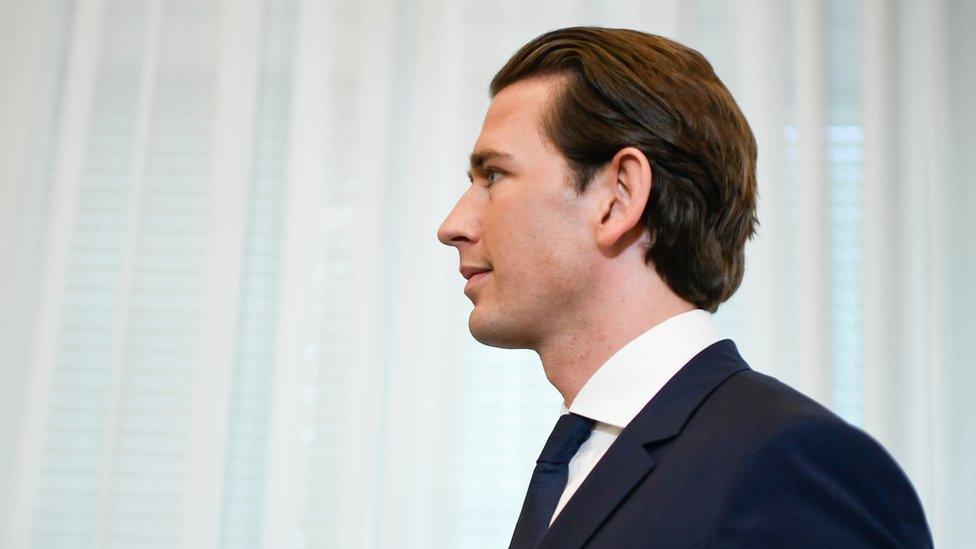
Chancellor Kurz has attempted to dismiss his interior minister over the scandal - but faces obstacles himself
The no-confidence motion, presented by Peter Pilz of the Jetzt party, called for a technocratic government to replace him until elections.
Mr Kurz had been part of two failed governments, he said. "Increasingly we get the impression that this failure is no accident.... With him apparently it's about increasing his own power."
"In the current situation, stability can only be achieved with an independent group of experts, not by a campaigning cabinet led by Kurz."
It is unclear which parties will back the motion.
On Tuesday morning, Mr Kickl said his party would vote against the chancellor if a no-confidence vote was brought forward.
But a Freedom Party spokesman told the Austrian Press Association that Mr Kickl's comments had been misinterpreted, and no decision had yet been taken.
What is in the video?
The scandal is widely being labelled "Ibiza-gate", after the Spanish island where the video was recorded. It was made just weeks before the election which saw both the FPÖ and Chancellor Kurz's People Party perform well.
Mr Strache said he resigned because he did not want to provide a pretext for the government's collapse
In the footage, released last Friday by German media, Mr Strache can be seen relaxing and drinking for hours at a villa with FPÖ parliament group leader Johann Gudenus, while they meet with a woman, considered an investor purported to be the niece of a Russian oligarch.
During the conversation, Mr Strache appears to propose offering her public contracts if she buys a large stake in the Austrian newspaper Kronen Zeitung – and makes it support the Freedom Party.
He is heard suggesting that a number of journalists would have to be "pushed" from the newspaper, and that he wants to "build a media landscape like [Viktor] Orban" – referring to Hungary's nationalist leader.
Many questions remain unanswered about the video itself: it is not clear who recorded or how it was offered to German media outlets.
The timing of its release - a week before European Parliament elections across the EU - has also been called into question. The Vienna prosecutor is considering a possible criminal inquiry.
How did scandal unfold?
The video's content was enough to force the resignation of Mr Strache on Saturday, within hours of it emerging and despite his protestations of innocence.
Chancellor Kurz said his party was "shocked", labelling Mr Strache's behaviour "a wrong approach to politics". He also called for a criminal investigation.
And he revealed the long-standing friction between the coalition parties, saying: "Even if I didn't express myself publicly at the time, there were many situations that I found difficult to swallow."
"I must say quite honestly: Enough is enough," he added.
Mr Kurz and President Alexander van der Bellen called for fresh elections over the scandal on Sunday.
A European Commission spokesman said members had "followed in disbelief as a leader of a political party was seen negotiating access to media and institutions, in exchange for funds from external benefactors who clearly do not have Europeans' best interests at heart".
A flurry of meetings and press conferences on Monday revealed little more, but it soon became clear that the FPÖ was standing by the interior minister.
When he was dismissed on Tuesday by the president, the party's other ministers followed immediately.
What happens next?
Austrians, in common with all other EU countries, are voting this week. Many who are voting by post have already cast their ballots, Austrian broadcaster ORF reports - and they cannot change their mind at this stage.
Meetings of senior officials continue, and it is possible the president may announce replacements for the FPÖ ministers, as the chancellor attempts to hold his government together.
- Published5 April 2019
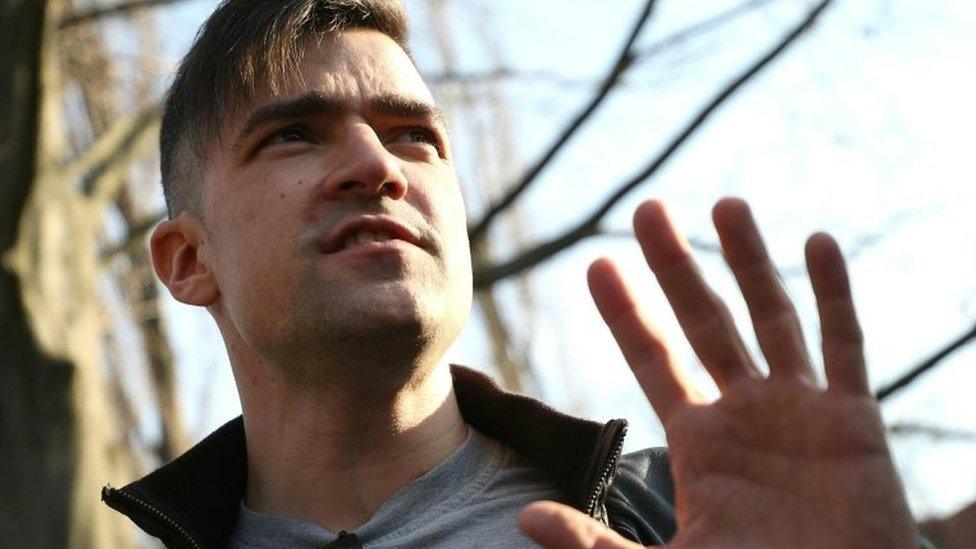
- Published27 March 2019
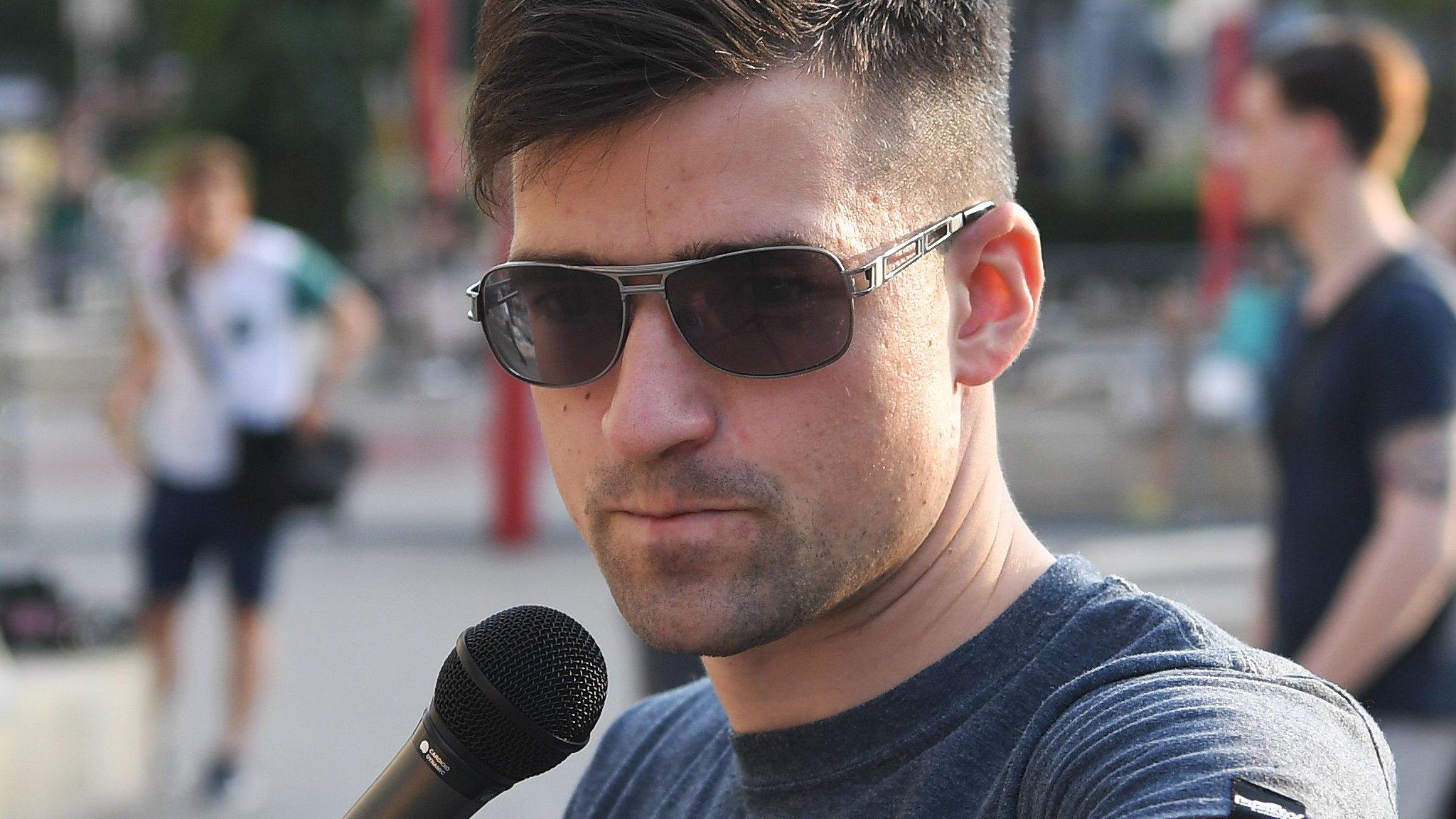
- Published20 September 2018
